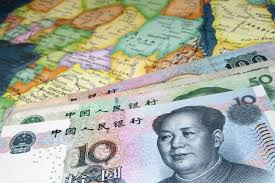The 2024 Forum on China-Africa Cooperation (FOCAC) Summit brought several pressing issues to the table, but none resonated more deeply than the subject of Africa’s mounting debt and the role China plays in addressing it. Debt, a topic that can often feel abstract, becomes real when it cripples economies, delays development projects, or stifles opportunities for millions of Africans. With China being Africa’s largest bilateral creditor, all eyes were on Beijing’s commitments and solutions during the summit.
Africa’s Debt Burden
Africa’s debt situation is complex. Over the years, many African nations have borrowed heavily to fund infrastructure, energy projects, and other development needs. While these investments have driven growth, they’ve also created challenges, especially when repayment terms are unfavorable or economic disruptions—such as the COVID-19 pandemic or global inflation—hamper nations’ ability to service their debts.
China’s involvement in Africa’s debt story is significant. As a key player in financing infrastructure projects, particularly under the Belt and Road Initiative (BRI), China has provided billions of dollars in loans to African nations. These funds have built roads, railways, ports, and power plants, creating visible development. However, the loans have also increased Africa’s debt-to-GDP ratios, sparking debates about long-term financial sustainability.
China’s Debt Restructuring Efforts
During the FOCAC Summit, Chinese officials addressed these concerns, emphasizing their willingness to work with African countries to restructure debt. They highlighted examples where China had already provided relief, such as extending repayment periods, lowering interest rates, or outright forgiving smaller loans.
China’s Foreign Minister, Wang Yi, stated, “China understands the pressures African nations face and remains committed to resolving debt issues through consultations and mutual respect.”
One notable initiative discussed was the Debt Service Suspension Initiative (DSSI), where China extended repayment moratoriums for some African countries during the pandemic. For instance, Ethiopia and Zambia have benefited from extended terms, easing the financial strain and allowing these nations to focus on immediate developmental needs.
The Critics Speak Out
Despite these efforts, critics argue that China’s role in Africa’s debt crisis is not without blame. Many believe that the terms of some Chinese loans lack transparency, often involving clauses that grant China control over strategic assets when countries default. For example, Zambia faced scrutiny over potential Chinese control of its state-owned electricity company after struggling to manage its debts.
Furthermore, some economists argue that while China’s loans finance critical infrastructure, they often overlook the economic viability of these projects. “It’s one thing to build a railway, but if it doesn’t generate enough revenue to pay back the loan, it becomes a burden rather than a benefit,” said an independent financial analyst during the summit.
Challenges for African Nations
African nations face a delicate balancing act. On one hand, they need foreign investments and loans to build the infrastructure necessary for economic growth. On the other, they must manage these debts carefully to avoid long-term financial instability.
Several countries, including Ghana and Kenya, have already implemented domestic policies aimed at improving debt management. These include boosting local tax revenues, reducing reliance on foreign debt, and seeking alternative funding sources like public-private partnerships. However, such efforts require time and institutional capacity, which not all nations have in abundance.
At the FOCAC Summit, African leaders also urged China to explore innovative solutions beyond traditional loans. Proposals included grants, equity partnerships, and investments that prioritize local economic participation rather than debt accumulation.
The Way Forward
The path to financial sustainability in Africa requires more than debt restructuring—it demands a shift in approach. African nations must push for greater transparency and fairness in loan agreements. Meanwhile, China must continue to demonstrate its commitment to being a responsible lender by considering the broader economic impacts of its financing strategies.
It is also essential for African leaders to diversify their economies, reduce dependence on external borrowing, and foster regional trade. Strengthening internal systems, such as improving governance and fighting corruption, can also help ensure that borrowed funds are used effectively and bring real development.
The conversation at the 2024 FOCAC Summit was a reminder that while debt management is an uphill battle, it’s not insurmountable. With stronger partnerships, better financial planning, and shared accountability, Africa can move toward a future of economic independence and sustainability.
As the summit concluded, a resounding message echoed: true cooperation is about more than loans—it’s about building a shared vision for progress that benefits all parties involved. Whether China and Africa can achieve this balance will determine the next chapter in their financial relationship.




